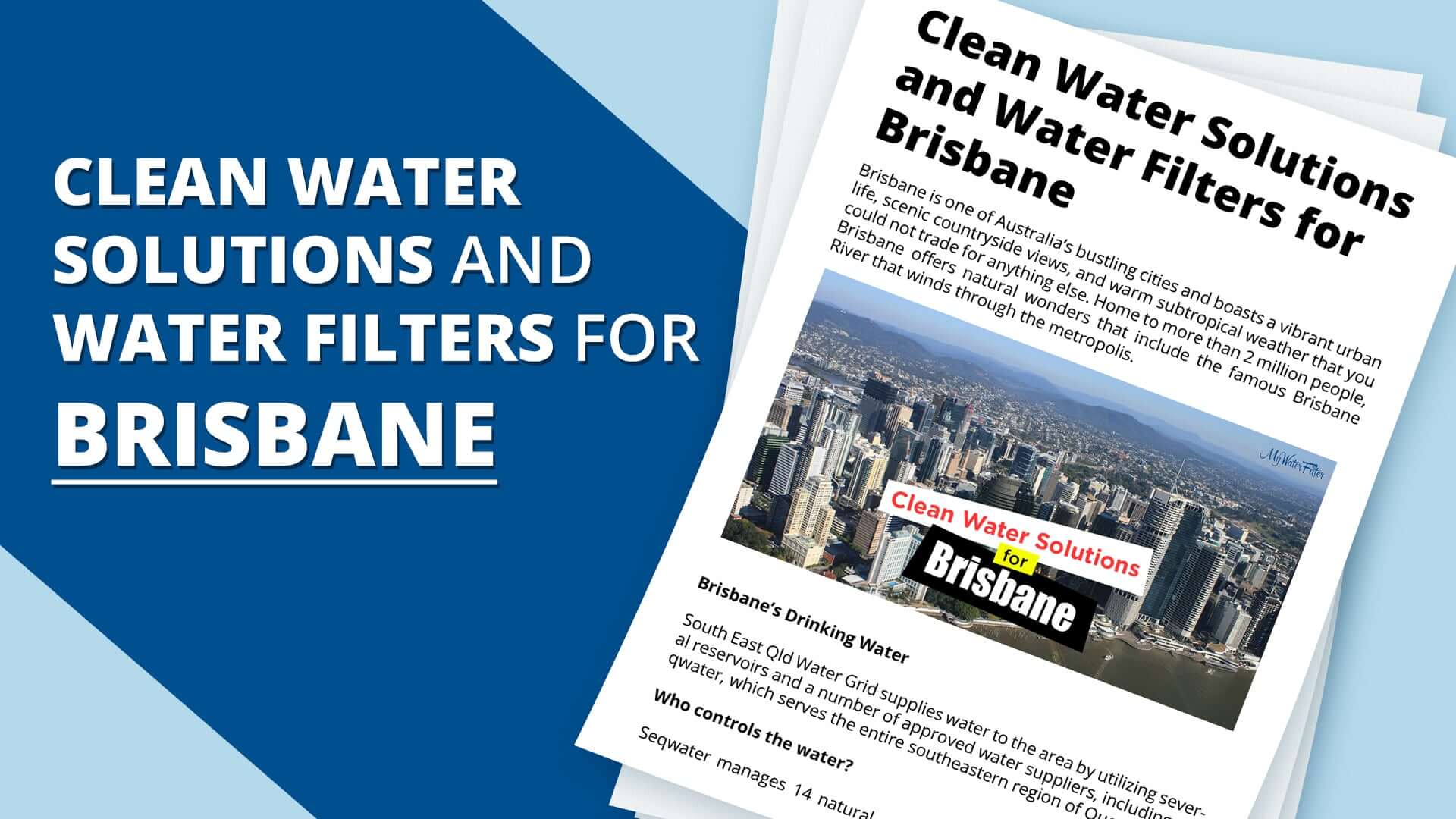Brisbane is one of Australia’s bustling cities and boasts a vibrant urban city life, scenic countryside views, and warm subtropical weather that you wouldn’t trade for anything else.
Home to more than 2 million people, Brisbane offers natural wonders that include the famous Brisbane River that winds through the metropolis.
Brisbane Water
South East Qld Water Grid supplies water to the area by utilising several reservoirs and a number of approved water suppliers, including Seqwater, which serves the entire southeastern region of Queensland.
Who Controls The Water?
Seqwater manages 14 natural catchments and 46 water treatment plants in the region and assures 3.6 million people in South East Queensland their drinking water is clean and safe.
The treatment plants carry out standard treatment practices—coagulation, flocculation, sedimentation, and filtration.
What Lurks In Brisbane’s Tap Water
Although 46 treatment facilities ensure Council Water supply is safe to drink before distribution to homes, problems are inevitable. One of the growing concerns for the government is the likelihood of summer floods affecting the drinking water supply.
In 2013, Seqwater had to spend $1.63 million to improve pipelines from Gold Coast to Brisbane after a flood in January dumped too much silt into Brisbane River, shutting down Mt Crosby Water Treatment Plant and contaminating the community water supply.
Floods significantly lower the quality of drinking water, and can completely cut off the city’s water supply.
It’s not just murky floodwaters you need to be concerned about either.
There are hidden dangers that you may be unaware of that impact our community water supply.
Despite significant filtration carried out in treatment plants, there are impurities and chemicals that escape conventional filtration.
What Studies Show Is In Our Drinking Water:
Copper - can naturally occur in our water systems and isn’t usually a risk to your health.
However, copper in large quantities can put you at risk of disease and discomfort. Corrosion of plumbing and fixtures commonly occur and slowly leak copper into your tap water. The scary thing is, when this happens, you won't even know it!
For more: Health Risk of Copper In Drinking Water
Mercury and Arsenic - are waste products of coal mining and other industrial activities.
Mercury compounds can cause brain damage, cancer, and kidney problems after prolonged exposure. Long-term exposure to arsenic raises your susceptibility to cancer and cardiovascular disease.
Pesticides - reach water reservoirs via runoff. Water analysis may reveal traces of several pesticide compounds in your raw tap water. These compounds may affect your kidneys, liver, and reproductive system.
Aside from the contaminants that escape city water filtration, two other notoriously common impurities in your tap water are chlorine and fluoride.
Chlorine - is added to kill microorganisms, but it reacts with organic matter to form trihalomethanes, which are very harmful to pregnant women.
For more: Chlorination, Are You Sure Your Drinking Water is Safe?
Fluoride - Brisbane’s water supply is still pumped with fluoride. It’s said to help prevent tooth decay but may also contribute to bone disease, birth defects, fluorosis, and IQ decline in children.
For more: Should You Be Worried About Fluoride In Your Drinking Water?
The quality of different water supplies varies depending on weather conditions, industrial activity and maintenance so you really can’t rely on the community water supply all the time.
Even if your tap water looks safe and clean, you never know for sure what’s lurking in it.
Is There Something You Can Do?
Floods and hidden contaminants may put you completely off your tap water but you don’t have to give up altogether. The solution is to have water filters at home to make sure you are drinking perfectly clean water that doesn’t have any unnecessary and possibly harmful impurities.
Clean Water During Floods
When it’s flood season, water filters become really important. They provide a second line of defence in case water treatment plants fail.
With An Excellent Water Filter, You Don’t Need To:
- Buy bottled water, with unknown or questionable quality.
- Worry about bacteria, microscopic algae, lead, or pesticides.
- Be troubled by scale build-up inside kettles, pipework, appliances and water containers.
How To Buy The Right Water Filter For Your Home
You can purchase a water filter almost anywhere but not all of them do the same job or are actually doing anything at all! You need to be so careful when shopping for one and should talk to the retailer about their products.
Check what level of filtration it has and if they have been tested and certified.
Tips for Choosing a Water Filter For Your Home:
Tip 1: Buy water filters only from reputable manufacturers and suppliers.
Tip 2: Make sure the filters are capable of advanced filtration to remove chlorine, fluoride, microorganisms, and other impurities.
Tip 3: Choose easy-to-operate filters.
Tip 4: Make sure they have met health standards and been certified.
Benchtop Systems are great for renters and people who move around and Under Sink Systems are perfect for homeowners and people who are looking for more permanent solutions for the kitchen.
If you’ve got any questions or require help choosing the perfect water filtration solution for your home, please contact us.








